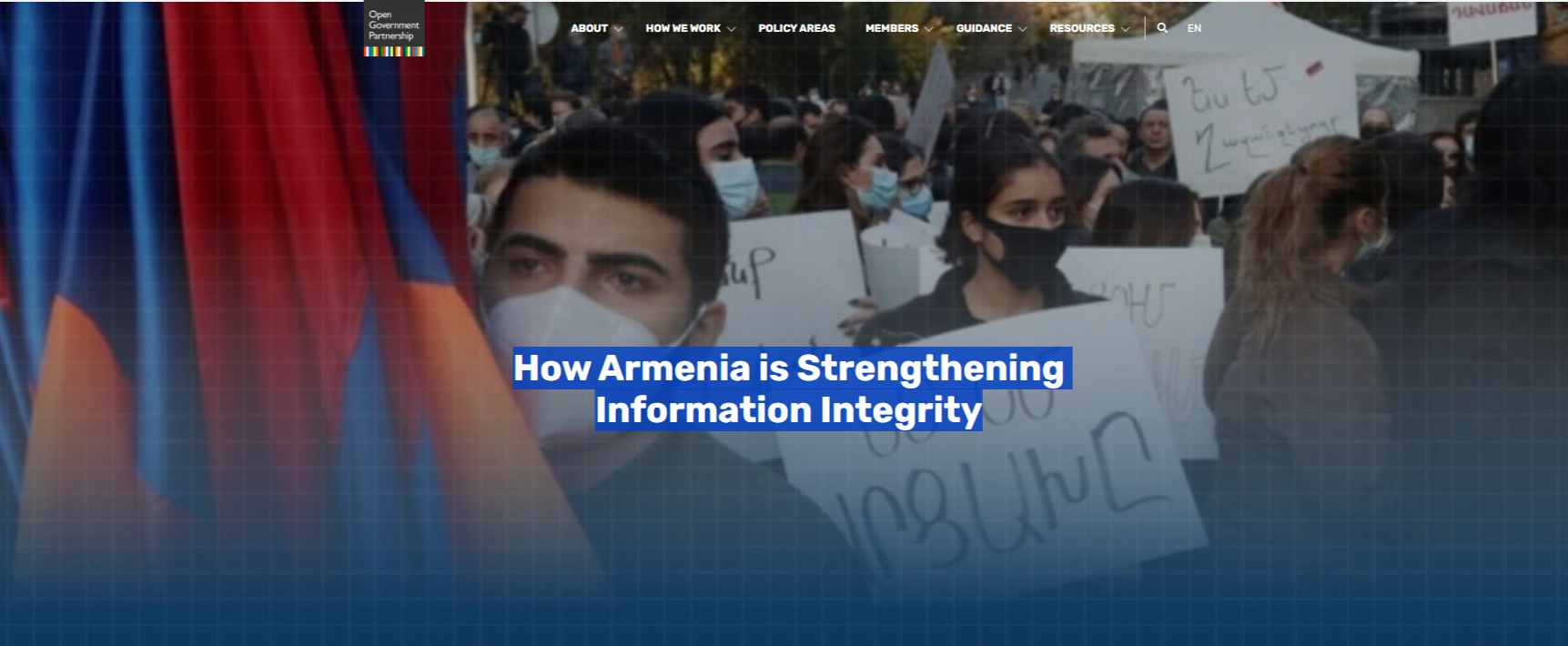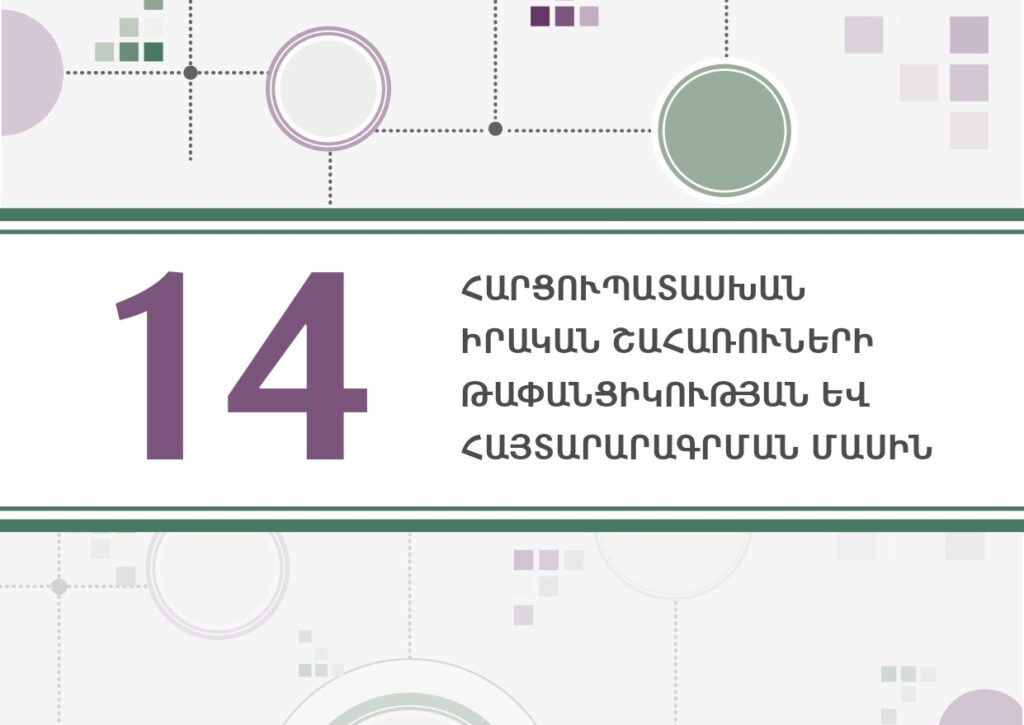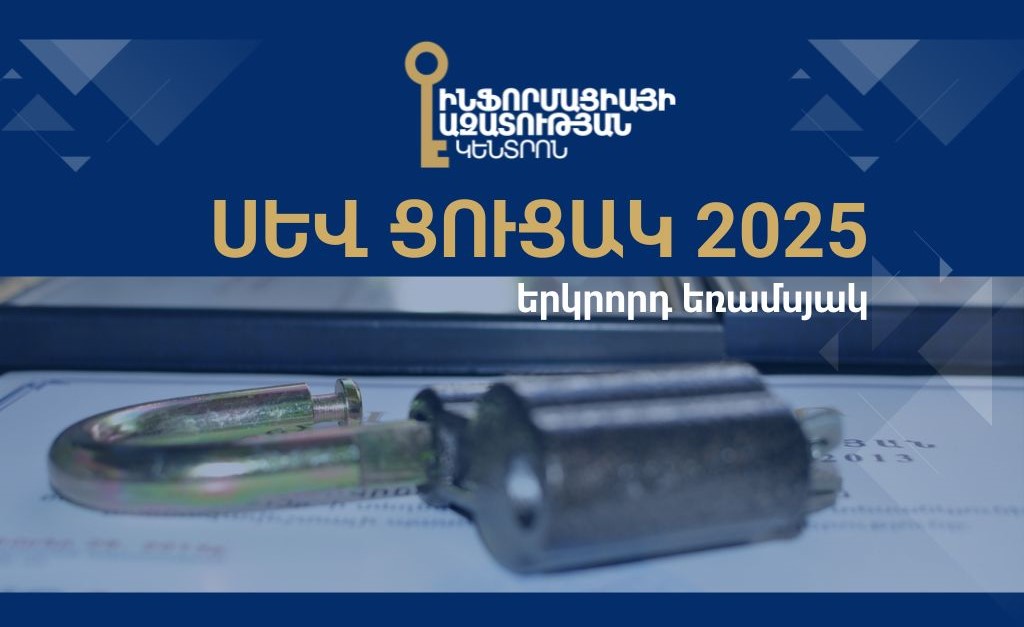The website of the RoA Ministry of Transport and Communication includes the draft Decree of the Government “On the requirements prescribed to official websites of state agencies”, which envisages streamlining and unifying the requirements that apply to official websites. As the draft implies, the main purpose of the Decree is to define clear-cut requirements for official websites. Upon the Decree’s adoption all official websites in Armenia will need to comply with the set requirements, which, as referred in the text below, “are of technical and organizational nature and are aimed at ensuring security, maintaining and ensuring information and technological constituents”. In a conversation with us, the Head of Informatization Department of the Ministry of Transport and Communication Norayr Stepanyan noted that the Decree is mainly targeted at systematizing and integrating official websites in terms of both external design and from a technical point of view, which will facilitate the solution of security related issues. N. Stepanyan noted that while developing the draft, the authors have mainly taken into account the experience of Moldova and Kirgizstan.
The specialists however have a dubious approach towards the draft’s requirements. This mainly concerns the unified design and issues related with the websites’ security. The Head of “Helix Consulting” company, Aram Mkhitaryan, believes that this document should have a consultative nature instead of regulative. “It is very positive that the document mentions the standards that the official websites need to comply with – W3C (World Wide Web Consortium), WAI (Web Accessibility Initiative), the latter being intended for ensuring the websites’ availability for people with limited abilities and at present only few websites in Armenia follow this standard. This is a good initiative but once adopted it will lead to a situation when all official websites will have to be upgraded in order to ensure these standards. In some websites this may take days, in others – months, since all websites that have been constructed as per old technologies, do not correspondent to these standards. I think it is negative that the document targets streamlining the websites’ appearance, their structure, sections, since whilst this can be done for the Ministries, for instance, which have more or less similar structure, there are certain agencies, that have a different structure and can not follow the same standard. For example the egov.am is an electronic services portal having a completely different set up, solves completely different issues and can never comply with this standards”.
The Executive Director of PanARMENIAN Media, IP Specialist Armen Azaryan says that there is no country in the world having adopted a similar legal act with a successful implementation practice. “Therefore we should not borrow these practices, implement them trying to adapt to our needs, since everything is evolving very fast in this field and both the demands and environments are very different”. According to Armen Azaryan a legal act regulating the field is undoubtedly needed but this should concern, for example, the requirement that the website (server) be located in Armenia, that there should be antivirus programmes, etc. It order to regulate other issues it would be more appropriate to set up a private company with security and other specialists to work on the websites by creating work plans separately for each website and to follow their implementation since each of the websites has its own peculiarities. As to why such company should be a private one, Armen Azaryan explains that for now the state does not have enough funds for hiring such specialists. “The function of the relevant state structure should be then to ensure communication between relevant specialists and the state”, Azaryan notes.
Experts from “Internet Society” NGO have been involved in the process of the draft’s elaboration but the Vice-President of this NGO, Grigor Saghyan, presents his main objections about the draft now: “Security related issues should be separated, provisions concerning design should be made more moderate and importantly, the impact that this initiative will have on the budget should be mentioned by indicating the funding sources”. The draft includes net and security related issues that require the involvement of relevant experts, however the document says nothing about financial sources to engage with such personnel. The document excludes as well the expense that will be necessary to re-design the websites, since most of these websites do not meet the defined standards”, the NGO Vice-President says.
Draft Decree requirements addressing the content of official websites are almost completely welcomed by the non-government NGOs in the media sector. Liana Doydoyan, a Freedom of Information Centre (FOIC) expert finds it very positive that as per this Decree the information whish is subject to compulsory publication as per the Law on Freedom of Information (FOI) should be published on the relevant agencies’ websites. “Currently the websites of state structures are globally used as one of the most effective tools to pro-actively provide information. While the Law clearly stipulates the requirements and procedure for the compulsory publication of official information, it still does not regulate mechanisms for providing official information electronically. This Decree would solve the issue since most of the official websites currently do not correspond to the FOI Law’s requirements”, the FOIC expert mentions.
The Head of “Helix Consulting” Aram Mkhitaryan mentions another significant aspect that concerns the content of official websites: “The most important thing that I highly appreciate is that the Decree explicitly mentions the content that the official websites should have. The following point, for instance, considerably facilitates the work with state agencies and clearly demands that there should be a responsible person or unit for the website’s content: “In order to organize the process of ensuring information availability, its updating and uploading, as per the Decree of the relevant state institution, an officially designated person or a structural unit shall be appointed”. In the opinion of Olga Safaryan, lawyer for the Committee to Protect Freedom of Expression NGO, if adopted and truly functional, the Draft will significantly promote the state agencies’ efforts to be more consistent in improving their websites. The results of the monitoring conducted by the Committee show that there are already some positive developments in this field. “These results however are not fully satisfying. Pieces of information are either missing in the websites or presented in such way as they are not user-friendly”, says Olga Safaryan.
The President of the “Journalists for the Future” NGO Suren Deheryan considers that it is important to have “one handwriting” in the official websites. “A citizen should be able to easily find answers to his/her questions, i.e. interactions with state bodies should be simplified to the maximum and made easy for citizens”. He believes that currently the key problem in terms of official websites is the absence of information sections telling who information providers are. Not all websites include this information in a complete manner. According to him, the document contains good provisions and if properly enforced, it can bring positive change.
As FOI expert Liana Doydoyan added, the Centre has prepared recommendations on introducing supplements to the draft Decree and has sent these recommendations to the Ministry of Transport and Communication. These recommendations include, for instance, inclusion of freedom of information sections in the websites to present FOI legislation, samples for submitting information requests and to provide guidance on the timeframes and procedures for receiving information. “Following our recommendation such section is already functional on the website of the Ministry of Territorial Administration, which, I believe, facilitates the process of receiving information”.
The draft Decree however is in a discussion stage and we would suggest that all interested organizations and companies familiarize with the draft and provide their professional opinion and recommendations, in order not to face problems following its adoption, as is the case with many bills.
Paranzem Vardanyan











